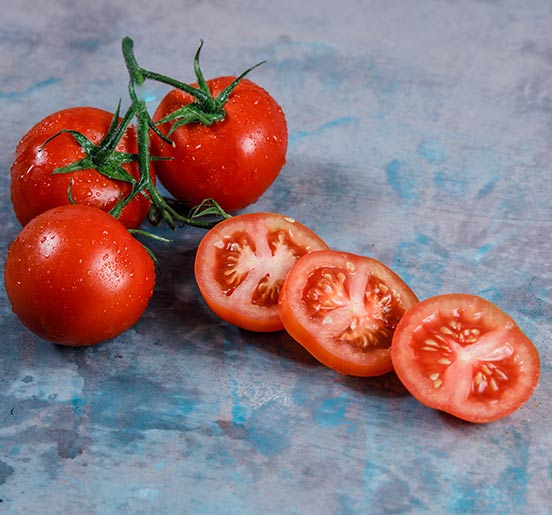
Nurturing Digestive Harmony: Your Guide to Optimal Gut Health
February 26, 2024
Benefits of Regular Check-Ups
November 18, 2024The Impact of Tomatoes on Acid Reflux: What You Need to Know

Tomatoes are a beloved ingredient in many dishes, from fresh salads to rich pasta sauces. However, for individuals suffering from acid reflux, tomatoes can be a double-edged sword. Understanding the relationship between tomatoes and acid reflux is crucial for managing symptoms and maintaining a balanced diet.
What is Acid Reflux?
Acid reflux, also known as gastroesophageal reflux disease (GERD), occurs when stomach acid flows back into the esophagus, causing discomfort and a burning sensation commonly referred to as heartburn. Various factors can trigger acid reflux, including dietary choices, lifestyle habits, and certain medical conditions. If you’re experiencing frequent acid reflux, an Upper Endoscopy can help evaluate the severity of your condition.
Why Do Tomatoes Trigger Acid Reflux?

Tomatoes and tomato-based products are known to trigger acid reflux for several reasons:
- High Acidity: Tomatoes are naturally acidic, which can increase stomach acid levels and exacerbate reflux symptoms.
- Relaxation of the Lower Esophageal Sphincter (LES): The LES is a muscle that acts as a valve between the esophagus and stomach. Acidic foods like tomatoes can cause the LES to relax, allowing stomach acid to flow back into the esophagus.
- High Water Content: While hydration is generally good, the high water content in tomatoes can sometimes contribute to an increased volume of stomach contents, leading to reflux.
Managing Acid Reflux While Enjoying Tomatoes
If you love tomatoes but struggle with acid reflux, here are some strategies to help you enjoy them without triggering symptoms:
- Moderation is Key: Limit your intake of tomatoes and tomato-based products. Smaller portions are less likely to cause discomfort.
- Cooked vs. Raw: Cooked tomatoes might be easier to digest for some people. Experiment with different preparations to see what works best for you.
- Combine with Alkaline Foods: Pair tomatoes with alkaline foods (such as leafy greens, cucumbers, and avocados) to help neutralize their acidity.
- Avoid Eating Late: Eating tomatoes or tomato-based dishes late at night can increase the risk of acid reflux. Aim to have your last meal at least two to three hours before bedtime.
- Opt for Low-Acid Tomato Products: Look for low-acid tomato varieties and products, which may be less likely to trigger reflux.
Alternative Ingredients to Consider
If tomatoes consistently cause problems, consider substituting them with other ingredients that are less likely to trigger acid reflux:
- Red Bell Peppers: These can provide a similar color and sweetness to dishes without the high acidity.
- Carrots: Pureed carrots can add texture and sweetness to sauces and soups.
- Pumpkin: This can be a great base for sauces, providing richness without the acidity of tomatoes.
Conclusion
While tomatoes are a nutritious and versatile ingredient, they can be problematic for individuals with acid reflux. By understanding how tomatoes affect acid reflux and making mindful dietary choices, you can manage your symptoms effectively while still enjoying a varied and flavorful diet. If you continue to experience discomfort, consider consulting a healthcare professional to tailor a dietary plan that suits your specific needs. For a holistic approach to managing weight and digestive health, explore our Weight Management Program.
For more personalized advice and treatment options, visit Vanguard Gastroenterology in New York, NY. Our dedicated team is here to help you manage acid reflux and improve your overall digestive health. Schedule an appointment today or call us.
Frequently Asked Questions
Q2: Can I still eat tomatoes if I have acid reflux?
Yes, but in moderation. Opt for smaller portions, cooked tomatoes, or low-acid varieties, and pair them with alkaline foods to reduce the likelihood of symptoms.
Q3: What foods can I use as substitutes for tomatoes to avoid acid reflux?
Red bell peppers, pureed carrots, and pumpkin are good alternatives that provide similar color and texture without high acidity.
Q4: How can I manage acid reflux symptoms while eating tomato-based dishes?
Eat smaller portions, avoid late-night meals, combine tomatoes with alkaline foods, and consider low-acid tomato products to minimize reflux triggers.
Q5: When should I see a doctor about my acid reflux?
If you experience frequent or severe acid reflux symptoms, consult a healthcare professional. Tests like an Upper Endoscopy can assess the severity, and a tailored dietary plan may help.



